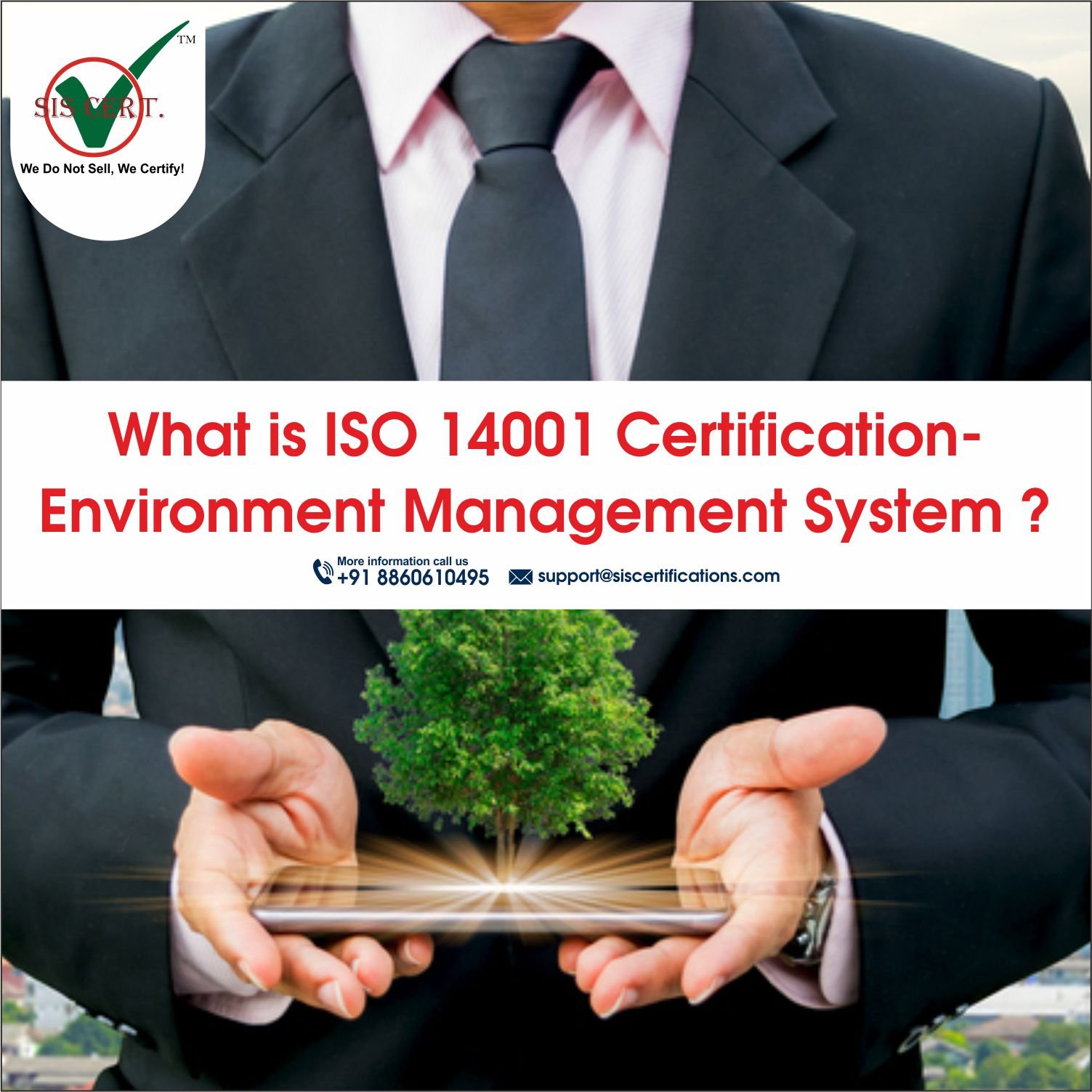ISO 14001 certification is one of the world’s first international standards for Environment Management System. The International Organization for Standardization (ISO) has developed ISO 14001 standard to help organizations to redesign their environmental management system based on globally accepted arrangements.
It provides tools and techniques for an organization to attain the desired results and harmonizes various environmental standards in a single framework. It follows a risk-based approach and focuses on identifying the potential risks and elements that can cause negative environmental impacts. The organization must take corrective actions to eliminate risks and implement appropriate controls to enhance its environmental performance.
ISO 14001 promotes innovation and adopts eco-friendly practices to increase an organization’s operating efficiency and environmental performance. It includes functions, activities, physical boundaries and products and services of an organization. It applies to the whole organization as well as specific individual elements of the organization.
Why is there a Need for Environment Management System ?
The ISO 14001 Certification for Environment Management System (EMS) helps an organization improve its environmental performance and reduces negative environmental impacts. It operates on six key elements, including:
- Environmental Policy – It sets out the requirements for an environmental policy working to achieve all the objectives, mission and vision determined by the organization. It follows the principle of environmental sustainability and enables an organization to achieve green growth and sustainable development.
- Planning – After defining the scope of EMS, an organization must formulate policies and plans to implement the environmental management policy. It focuses on identifying the weaknesses and evaluates the environmental impacts of all business operations.
- Implementation – An organization must take corrective actions and implement appropriate controls to eliminate all the factors responsible for negative environmental impacts. It aims to improve the organization’s overall environmental performance.
- Study and Correct – After implementing an Environmental policy, the organization must monitor and evaluate the effectiveness of EMS and take remedial actions where needed. An organization must maintain all the necessary documents and conduct audits frequently to establish an effective environmental management system.
- Management Review – To determine the effectiveness and efficiency of the EMS, an organization must conduct an internal audit. The management is required to monitor and evaluate its EMS frequently.
- Continuous Improvement – ISO 14001 standards integrate the Plan-Do-Check-Act cycle to improve business operations and individual processes. An organization must follow the principle of continual improvement to enhance its business operations and environmental performance.
Key Benefits of Implementing ISO 14001 Certification
Implementing ISO 14001 standards offer the following benefits to an organization:
- Reduces Cost – It is a cost-effective standard and helps in controlling costs. It provides necessary training to the employees to control the unnecessary running of machinery and aims to identify and eliminate all the waste. It also helps in reducing energy costs by encouraging an organization to adopt clean and renewable sources of energy and helps in avoiding regulatory fines and penalties. It identifies the negative environmental impacts and implements control to mitigate them, as well as reduces the cost of input materials.
- Promotes Sustainability – An Environment Management System integrates various legal, national and international standards in a single framework and provides a holistic approach to ensure sustainability. It works in line with sustainable development and offers more stable growth to an organization.
- Compliance with Legal Requirements – Environment Management System provides a framework to identify, monitor and comply with all the environmental requirements. It ensures that the organization keeps up to date with all the regulations and demonstrates an organization’s compliance with various local, national and international environmental standards. It helps an organization avoid regulatory fines due to non-compliance.
- Enhances reputation – ISO 14001 Certification- Environment Management System creates a better image of your organization among customers, clients and potential businesses. It increases the reliability and credibility of the organization and helps you win new businesses and customers.
- Reduces Waste – It reduces the amount of waste generated by the organization and offers tools and techniques to an organization to effectively and efficiently use the resources. It requires an organization to have a solid waste management plan to treat the waste. ISO 14001 standards require providing necessary training to the employees to make workers competent and well-educated to conduct business operations.
- Improves Environmental Performance – ISO 14001 certification offers tools and techniques for an organization to enhance its environmental performance by reducing the negative environmental impacts caused by the organization. It conducts a risk assessment to identify the elements that are causing undesired results and offers appropriate controls to eliminate them.
Conclusion
An ISO 14001 Certification – Environment Management System standard is an internationally accredited standard that aims to reduce the negative impacts caused by organizations and enhances their environmental performance. It provides a framework for monitoring, reviewing, analysing, improving and maintaining an organization’s environmental performance. This standard works in line with the sustainable development goals and promotes green growth.
ISO 14001 certification is a generic standard that applies to most industries, including public, private and not-for-profit organizations, regardless of size, nature and location. It is a cost-effective standard and saves money spent on insurance premiums, compensation, wastage of resources and regulatory fines and penalties due to non-compliance. It leverages your organization and offers a competitive edge in the market. ISO 14001 standard demonstrates that an organization follows international standards and provides access to the global market. It enables an organization to adopt eco-friendly practices and technologies, promotes innovation and offers a structured method to enhance business operations and environmental performance.


